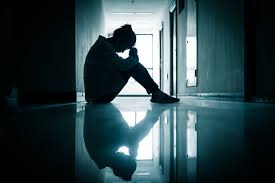How Depression and Anxiety Affect Your Marital Relationship and How Therapists Can Help

Marriage is built on love, trust, and mutual support, but when depression or anxiety enters the picture, it can strain even the strongest relationships. These mental health challenges can create emotional distance, miscommunication, and a cycle of frustration for both partners. However, with the right support, couples can overcome these struggles and rebuild a stronger, more connected relationship.
In this article, we’ll explore how depression and anxiety affect marital relationships and how therapists can help couples navigate these challenges to create a fulfilling and beautiful bond.
How Depression and Anxiety Affect Marital Relationships
Depression and anxiety not only affect the individual experiencing them but also ripple into their relationships, particularly with their spouse. Understanding these impacts is the first step toward addressing them.
1. Emotional Distance and Withdrawal
Depression often causes individuals to withdraw emotionally and physically from their partners. They may feel overwhelmed, exhausted, or incapable of engaging in meaningful interactions, leaving their spouse feeling lonely and disconnected.
2. Increased Irritability and Conflicts
Anxiety can heighten irritability and make it difficult to manage emotions. Small disagreements can escalate into major conflicts, as anxiety amplifies fears and insecurities, leading to misunderstandings.
3. Intimacy Challenges
Mental health struggles can reduce interest in intimacy, creating physical and emotional distance. Anxiety may lead to overthinking, self-doubt, or fear of vulnerability, while depression often saps energy and desire.
4. Communication Breakdowns
Anxiety can cause overthinking, leading to misunderstandings or assumptions, while depression often results in a lack of communication altogether. These communication gaps can lead to frustration and resentment.
5. Co-Dependency or Burnout
A spouse may take on a caregiving role, providing constant support for their partner. While this is often done out of love, it can lead to emotional burnout, resentment, or co-dependency if the mental health issues remain unaddressed.
FOR MORE INFORMATION CLICK HERE : hot air balloon rides near me
The Role of Therapists in Helping Couples Overcome Anxiety and Depression
Therapists play a crucial role in helping couples navigate the challenges posed by anxiety and depression. Through professional support and evidence-based techniques, they empower both partners to heal individually and strengthen their relationship together.
1. Identifying Underlying Issues
An anxiety therapist helps uncover the root causes of anxiety or depression. Whether it’s unresolved trauma, work stress, or personal insecurities, identifying these triggers is essential to addressing them.
2. Teaching Effective Communication
Therapists guide couples in expressing their thoughts and feelings in a constructive way. This helps reduce misunderstandings, fosters empathy, and rebuilds trust. Techniques like active listening and “I” statements can transform how couples approach difficult conversations.
- Example: Instead of saying, “You never understand me,” a therapist might encourage phrasing like, “I feel unheard when we talk about certain issues.”
3. Providing Individual and Couple Therapy
- Individual Therapy: Focuses on helping the person with anxiety or depression develop coping mechanisms and process their emotions. Techniques like Cognitive Behavioral Therapy (CBT) can help reframe negative thought patterns.
- Couple Therapy: Creates a safe space for both partners to work through their emotions, rebuild intimacy, and establish a stronger connection.
4. Offering Stress-Reduction Techniques
For individuals with anxiety, the best relationship counsellor introduces relaxation techniques like mindfulness, deep breathing, and grounding exercises to manage stress. These tools not only help the individual but also reduce tension in the relationship.
5. Encouraging Self-Care for Both Partners
Therapists emphasize the importance of self-care for both partners. While the person struggling with mental health learns to care for themselves, the spouse is encouraged to avoid burnout by setting boundaries and seeking support.
You may also read about: wedding gifts
6. Rebuilding Intimacy
Therapists help couples address intimacy challenges by fostering vulnerability and emotional closeness. They may recommend exercises to rekindle physical and emotional intimacy in a comfortable, pressure-free way.
Practical Tips for Couples Dealing With Depression or Anxiety
In addition to therapy, couples can take proactive steps to support each other and maintain a healthy relationship:
1. Practice Patience and Understanding
Recognize that mental health struggles are not a choice. Instead of blaming or resenting your partner, focus on showing empathy and support.
2. Set Realistic Expectations
Accept that recovery is a process and not a quick fix. Celebrate small victories and progress, rather than focusing on setbacks.
3. Prioritize Open Communication
Make time for honest and non-judgmental conversations. Share your thoughts, feelings, and concerns to foster connection and understanding.
4. Spend Quality Time Together
Engage in activities that both of you enjoy, even if they are simple. Shared experiences can help rebuild closeness and trust.
5. Support Each Other’s Self-Care
Encourage your partner to engage in activities that promote well-being, such as exercise, hobbies, or spending time with friends. At the same time, make sure to care for yourself.
Why Seeking Help Is a Sign of Strength
Admitting that your marriage is struggling due to anxiety or depression is not a sign of failure—it’s an act of courage and love. Seeking professional help demonstrates your commitment to each other and your desire to create a healthy, lasting relationship.
Therapists provide the tools and support needed to navigate the challenges of mental health together, showing couples that with the right help, it’s possible to overcome obstacles and enjoy a beautiful, fulfilling marriage.
Conclusion
Depression and anxiety can undoubtedly strain a marital relationship, but they don’t have to define it. With the guidance of a skilled therapist, couples can learn to communicate effectively, rebuild intimacy, and support each other through life’s challenges.
If you or your partner are struggling, don’t hesitate to seek help. Therapy can transform your relationship, allowing you to overcome anxiety and depression together and create a stronger, more loving bond. Remember, every step toward healing is a step toward enjoying the beautiful marriage you deserve.




